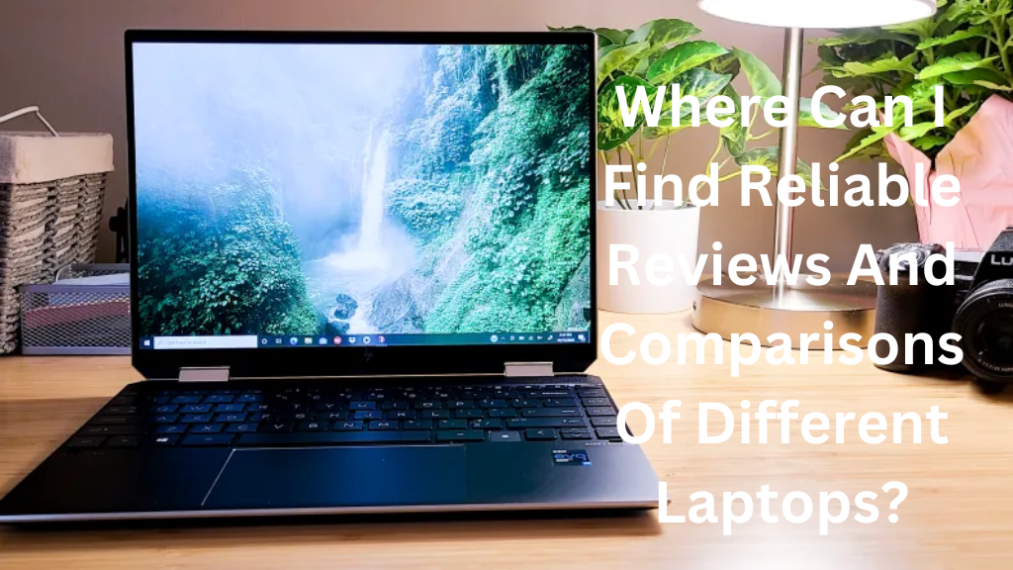Choosing the right laptop can often seem daunting, especially with the many available options. But don’t worry! This article is here to help you cut through the confusion and find the perfect laptop that fits your needs.
Understanding Your Needs
Before we delve into the specifics, it’s crucial to take a moment and reflect on what you want your new laptop to do for you. Are you a hardcore gamer looking for a high-performance machine? Or, are you a college student searching for a budget-friendly laptop for note-taking and research? Maybe you’re a business professional who needs a lightweight, portable laptop with excellent battery life for frequent travel. Your needs will significantly influence the type of laptop you should buy.
Key Features to Consider
While the ideal laptop varies from person to person, there are some key features everyone should consider. Let’s look at them:
- Processor: This is the brain of your laptop. A higher-end process will allow your computer to run more complex tasks smoothly.
- RAM: Random Access Memory is crucial in how swiftly your laptop runs. More RAM equates to smoother multitasking.
- St rage: SSDs (Solid State Drives) offer faster speeds than traditional HDDs (Hard Disk Drives).
- Battery Life: If you’re often on the go, you’ll want a laptop with a long-lasting battery.
- Screen Size: This depends on your preference and what you’ll use the laptop for. Larger screens benefit gaming and design, while smaller ones are more portable.
With this foundation, you’re well on your way to making an informed choice about your next laptop. Read on as we delve deeper into each aspect to guide you through your buying process.
Where Can I Find Reliable Reviews And Comparisons Of Different Laptops?

When searching for a new laptop, you must arm yourself with information from credible sources. Reading reliable reviews and comparisons can help you make a well-informed decision and ensure you’re investing in a device that suits your needs. But where can you find these trustworthy reviews and comparisons? Let’s explore.
Online Tech Magazines and Blo
Online tech magazines and blogs are a gold mine of information regarding laptop reviews and comparisons. Websites like PCMag CNET, TechRadar, and Lap op Mag offer in-depth reviews and feature comparisons of the latest laptop models. These sites often employ tech experts who put each device through rigorous testing, providing an unbiased perspective on performance, build quality, battery life, and more.
User Reviews
While expert reviews are precious, user reviews offer a wealth of information. Websites like Amazon and Best Buy feature customer reviews of laptops, giving you real-world insights into the pros and cons of each model. Remember, however, to take each review with a grain of salt, as individual experiences can vary.
YouTube Channels
For those who prefer video content, YouTube is a great resource. Channels like MKBHD Linus Tech Tips and Dav Lee offer detailed video reviews and comparisons of different laptop models. These reviews often include demonstrations of the laptops in action, giving viewers a comprehensive understanding of each device’s capabilities.
Forums and Discussion Boards
Forums and discussion boards such as Reddit and Quora can also be a great source of information. Users often share their experiences with their laptops, providing another layer of real-world insights. Check out subreddits or threads dedicated to laptops for the most relevant information.
To summarize, reliable reviews and comparisons can be found online, from tech magazines to user reviews to YouTube channels. By taking the time to research and compare laptops, you’ll be able to choose a computer that perfectly fits your needs.
What Is the Average Lifespan Of A Laptop?
Knowing the average lifespan of a laptop can significantly influence your buying decision. Understanding how long you can expect your investment to last is essential.
The average lifespan of a laptop is typically between 3 to 5 years. However, it’s vital to remember that just because a computer can last up to five years doesn’t mean it will remain high-performing throughout its entire life. As technology advances, newer software and AP locations may not run as smoothly on older hardware.
Based on several factors:
- Usage: Using your laptop for heavy tasks like gaming or video editing could wear out faster than using it for basic tasks like web browsing or word processing.
- Maintenance: Regularly cleaning your laptop, protecting it from viruses and malware, and keeping its software up-to-date can significantly extend its lifespan.
- Quality: Higher-end laptops tend to last longer than cheaper models. They are built with better-quality components designed to withstand wear and tear.
How Much Should I Budget For A Good-Quality Laptop?
Deciding how much to budget for a good-quality laptop can be a bit of a balancing act. It depends on your needs and the tasks you’ll perform on your computer. However, you can expect to pay anything from $300 to $3000 for a new laptop to give you a ballpark figure.
Fundamental Factors to Consider
There are several key components to look at when budgeting for a laptop. Each piece has a direct impact on the laptop’s performance and price. Let’s look at them:
- CPU- This is the brain of your laptop. The latest Intel Core processors (i7, i9) and A Ryzen are typically found in high-end laptops.
- RAM- Also known as memory, this is where your laptop stores data that it uses often. More RAM allows for smoother multitasking.
- Stor e- Here, you have two options: HDD (Hard Disk Drive) or SSD (Solid State Drive). SSDs are more expensive but offer faster and more reliable performance.
- Display- The size and resolution of your laptop’s display can affect its price. Laptops with high-resolution screens (Full HD) are more expensive.
What Is The Warranty Coverage For Laptops?
When shopping for a laptop, warranty coverage is a crucial factor that you shouldn’t overlook. The warranty is essentially a promise from the manufacturer to take responsibility for any defects or malfunctions within a specified period.
Standard Warranty
Most laptops come with a standard one-year warranty, a limited warranty. This typically covers the cost of labor and parts needed to repair any hardware faults that can be attributed to defects in manufacturing.
Extended Warranty
Some manufacturers or resellers offer an extended warranty, which prolongs the warranty period by one to three years. This usually covers the same issues as the stan rd warranty but for a more extended period. It’s essential to note that an ample warrant often comes at an additional cost.
Accidental Damage Protection
In addition to the standard and extended warranties, some manufacturers offer accidental damage protection. This coverage extends to damages caused by spills, drops, electrical surges, and similar incidents that wouldn’t be covered under a standard warranty. Like the extended warranty, accidental damage protection typically costs extra.
International Warranty
If you travel often or plan to move abroad, you could consider a laptop with an international warranty. This warranty ensures you can get your computer serviced or repaired in a foreign country. Not all manufacturers offer this, so checking before purchasing is essential.
Remember, warranty terms and conditions vary significantly between manufacturers and models. Ensure you carefully read and understand the warranty information before making your final purchasing decision. This can save you a lot of time and money and has been down the line should anything go wrong with your laptop.
Conclusion
Choosing the right laptop for your needs isn’t a task to be taken lightly. It requires a comprehensive understanding of your requirements, some research, and a careful comparison of different models. It’s about balancing performance lifespan, budget, and warranty coverage.
Use reliable online resources, including tech magazines, user reviews, YouTube channels, and discussion boards, to gather information about various laptops. The average lifespan of a computer usually ranges between 3 to 5 years, but with proper care and maintenance, it can be extended.
When it comes to budgeting, it’s crucial to consider the initial cost and the potential long-term value. That includes the top’s performance, durability, and warranty coverage. And speaking of warranty, it’s always advisable to understand what your warranty covers, from standard to extended warranties, accidental damage protection, and even international deposits.
Above all, prioritize your needs and consider how the laptop can serve you best in your daily tasks or professional work. Considering all these factors, you’ll be more likely to find the perfect notebook fit for your needs and budget.





